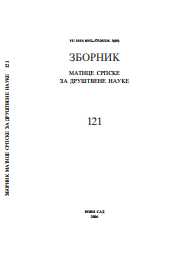ПОРОДИЧНИ ЗАКОН СРБИЈЕ ИЗ 2005. ГОДИНЕ У КОНТЕКСТУ ПЛАНИРАЊА ПОРОДИЦЕ
THE SERBIAN FAMILY ACT FROM 2005 IN THE CONTEXT OF FAMILY PLANNING
Author(s): Gordana Kovaček-StanićSubject(s): Civil Law, Family and social welfare, Demography and human biology, Transformation Period (1990 - 2010)
Published by: Матица српска
Keywords: law; Serbia; demographic development;
Summary/Abstract: In 2005, Serbia enacted a new Family Act, which is also applied in Vojvodina. Regarding family planning, the Family Act has introduced a reform of the provisions on parentage in cases of medically assisted conception. Regarding motherhood, the basic rule is that the mother is considered to be the woman that gave birth to the child, regardless of whether she is the genetic mother or whether the genetic material of another woman has been used. As for fatherhood, the basic rule is that the father is considered to be the husband or cohabiting partner of the mother, if he has given his written consent to artificial insemination. This rule applies both in cases of AIH (artificial insemination with husband/cohabiting partner sperm) and AID (artificial insemination with donor sperm). This paper deals with the issue of surrogate motherhood in European countries, as well. The regulation of the Family Act on parentage in cases of medically assisted conception presupposes the application of certain techniques of medical conception. These are the donation of the egg cell, embryo, AIH and AID. Furthermore, this regulation stipulates that subjects of medically assisted conception can be, besides spouses, heterosexual cohabiting partners. These issues, however, should be addressed by another law that would fully govern the area of medically assisted conception. Unfortunately, in contrast to the majority of European countries, such a law still does not exist in Serbia.
Journal: Зборник Матице српске за друштвене науке
- Issue Year: 2006
- Issue No: 121
- Page Range: 157-169
- Page Count: 13
- Language: Serbian

